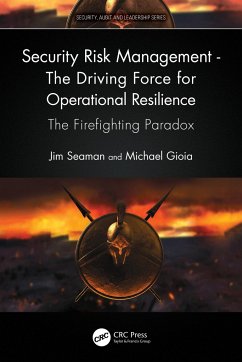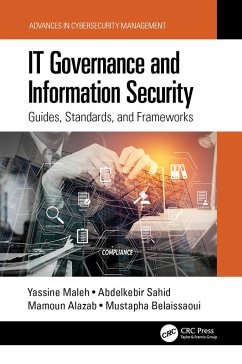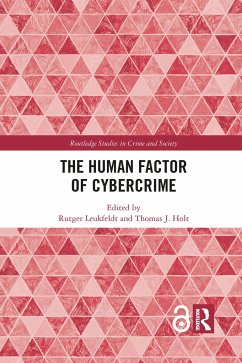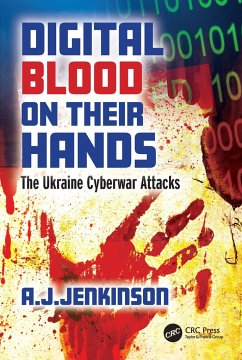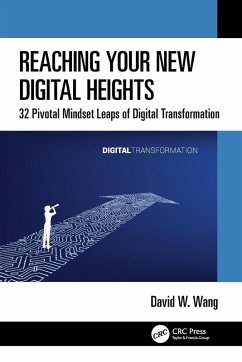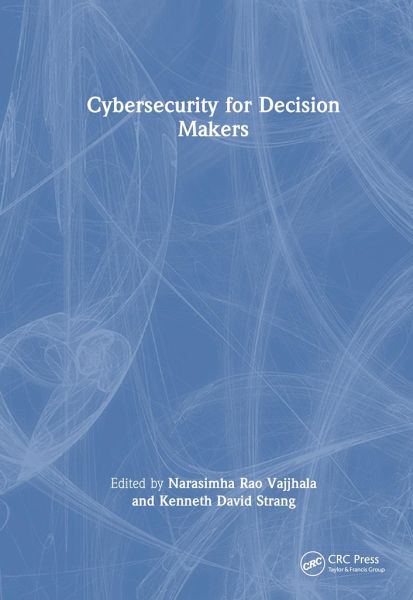
Gebundenes Buch
Cybersecurity for Decision Makers
Versandkostenfrei!
Versandfertig in 1-2 Wochen

PAYBACK Punkte
65 °P sammeln!




This book is aimed at managerial decision-makers, practitioners in any field, and the academic community. The chapter authors have integrated theory with evidence-based practice to go beyond merely explaining cybersecurity topics.
Narasimha Rao Vajjhala is working as an Associate Professor and the Chair of the Information Systems department at the School of IT and Computing at the American University of Nigeria. He had previously worked at the Faculty of Engineering and Architecture at the University of New York Tirana, Albania. He is a senior member of ACM and IEEE. He is the Editor-in-Chief (EiC) for the International Journal of Risk and Contingency Management (IJRCM) and the Guest Associate Editor for AI in Business, Frontiers in Artificial Intelligence (Scopus Indexed). He is also a member of the Project Management Institute (PMI). He has over 20 years of experience in teaching mainly programming and database-related courses at both graduate and undergraduate levels in Europe and Africa. He has also worked as a consultant in technology firms in Europe and has experience participating in EU-funded projects. He has completed a Doctorate in Information Systems and Technology (United States); holds a Master of Science in Computer Science and Applications (India), and a Master of Business Administration with a specialization in Information Systems (Switzerland). Kenneth David Strang has more than 290 mostly-sole-authored scholarly publications. He is a professor who teaches and supervises undergraduate, graduate, and doctoral students across five disciplines: business administration, management information systems, marketing/consumer behavior, supply chain management and economics/statistics. Ken has a doctorate in project management (operations research), an MBA (strategic management), a BSBA (marketing), an AAS (IT) all with summa cum laude/honors plus he is an internationally licensed Project Management Professional (PMI, USA), a Certified Research Professional (IIPMR, USA), a Certified Network Administrator (Novell, USA), a Certified Supply Chain Specialist/Procurement Professional (IIPMR, USA) and a Fellow Life Management Institute with distinction (LOMA, USA). Dr. Strang has lifetime grant projects valued over $7 million+, and he has won several honors including a Behavior Energy Climate Change Fellowship from the American Council for an Energy-Efficient Economy, the Emerald Literati award and Duke of Edinborough community service medal, along with several presidential citations.
Produktdetails
- Verlag: Taylor & Francis Ltd
- Seitenzahl: 424
- Erscheinungstermin: 20. Juli 2023
- Englisch
- Abmessung: 260mm x 183mm x 27mm
- Gewicht: 922g
- ISBN-13: 9781032334967
- ISBN-10: 1032334967
- Artikelnr.: 67679063
Herstellerkennzeichnung
Libri GmbH
Europaallee 1
36244 Bad Hersfeld
gpsr@libri.de
Für dieses Produkt wurde noch keine Bewertung abgegeben. Wir würden uns sehr freuen, wenn du die erste Bewertung schreibst!
Eine Bewertung schreiben
Eine Bewertung schreiben
Andere Kunden interessierten sich für




